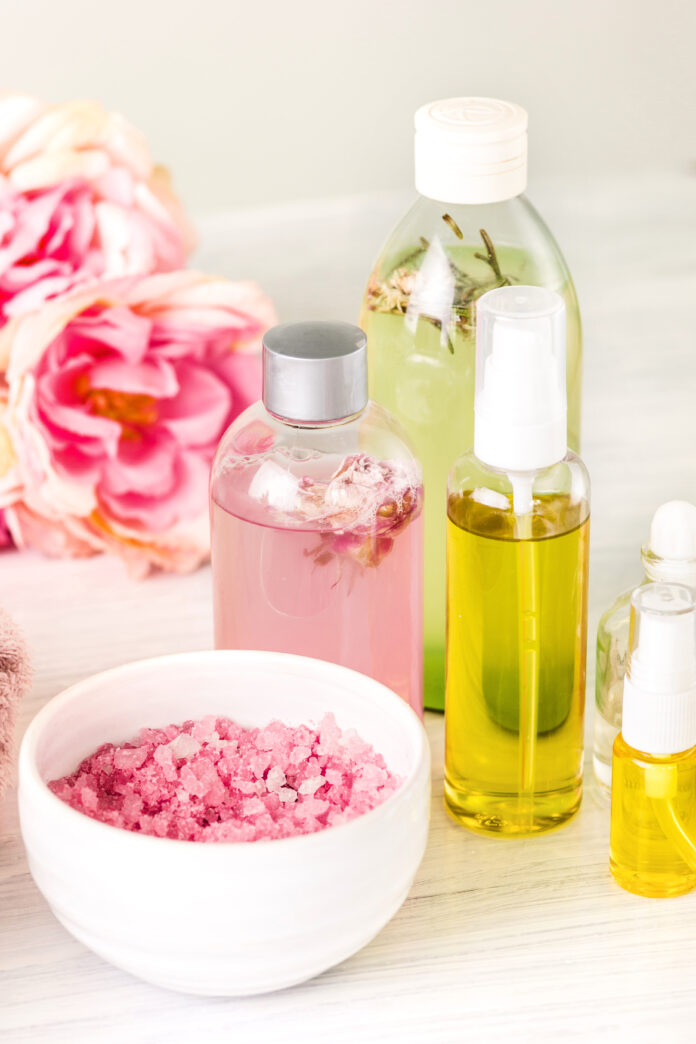Rosewater and Glycerin for Face is best product. Glycerin and rosewater are two ingredients often included in skincare products due to their moisturizing, soothing, and rejuvenating qualities. When combined together, they form the ideal combination for providing nourishment to the skin while improving its overall health—adding these two to your routine for skincare can bring many advantages for your complexion.
This article will highlight the advantages and applications of using rosewater and glycerin on your face and answer any frequently asked questions (FAQs).
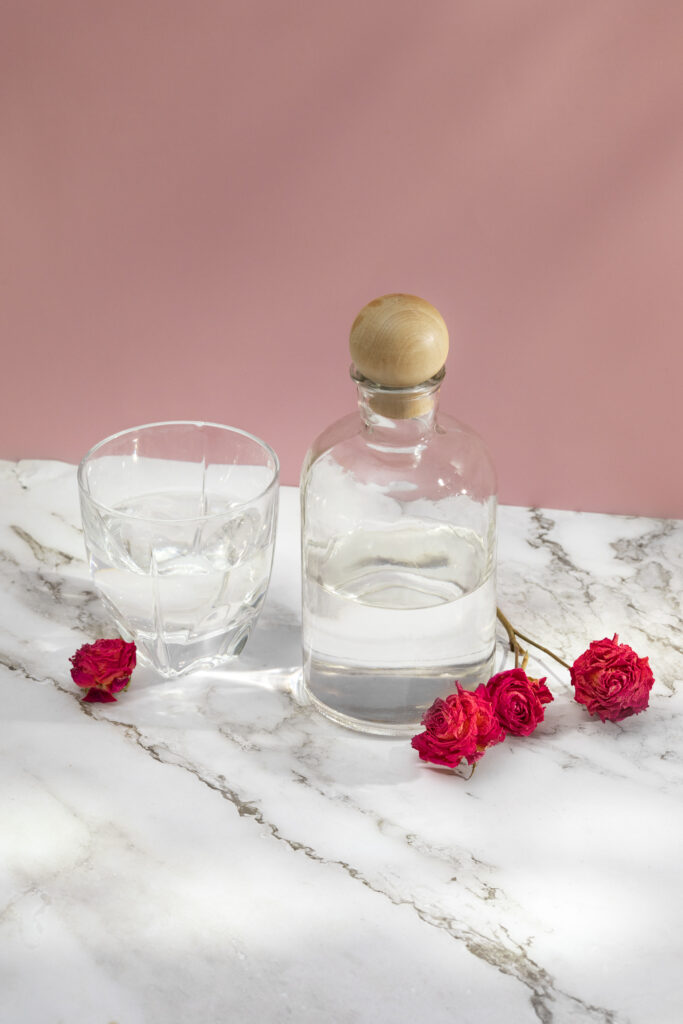
What is Rosewater?
By distilling rose petals with steam, we produce rosewater, a pure hydrosol. Different cultures have long utilized this hydrosol for its healing and soothing properties, which make it an excellent way to reduce redness in skin irritation and simultaneously promote an even skin tone.
What is Glycerin?
Glycerin (glycerol) is an inert, non-colored, flavorless, and sweet-tasting liquid typically extracted from plant oils. As a humectant, it draws in moisture from its surrounding environment to keep your skin hydrated; additionally, it forms an elastin layer on your skin, which helps seal in moisture, keeping dehydrated or dry skin at bay.
Rosewater and Glycerin Are Effective Facial Solutions
1. Hydration and Moisture Retention
Glycerin and rosewater both work to effectively moisturize your skin. Glycerin absorbs moisture from the air, while rosewater helps hold onto it for the long-term hydration of soft, silky skin throughout the day.
How to use:
Combine 1 tablespoon of rosewater with 1 tablespoon of glycerin.
Apply cream directly onto your face with a cotton pad after cleansing it first.
Let it sit for 20-30 minutes before rinsing it off with warm water.
2. Soothing and calming irritated skin.
People widely respect rosewater for its ability to reduce inflammation. Rosewater has the ability to soothe skin irritations, reduce inflammation from acne or sunburn, and alleviate its symptoms. When combined with glycerin, it helps prevent dryness that could otherwise irritate, making it an excellent option for people with sensitive skin.
How to Apply:
For optimal results, gently apply a mixture of glycerin and rosewater directly onto the affected areas.
Allow the solution to sit for approximately 15 minutes before washing it away.
3. Strives to Achieve Even Skin Tone
Rosewater can help balance the pH level of skin to promote overall wellness, with its antioxidants helping reduce dark spots and uneven pigmentation. Furthermore, glycerin provides additional hydration, which brightens up complexion over time while improving appearance overall.
How to Use:
Use it regularly as a toner after cleansing.
Regular usage can result in smoother and brighter skin tone.
4. Prevent acne and breakdowns.
Rosewater contains natural antiseptic properties that make it an excellent way to prevent breakouts of acne. Additionally, rosewater helps cleanse skin by clearing away oil and dirt build-up that could clog up pores; its moisturizing effects stop overproduction of oil in skin pores, which reduces the likelihood of blackheads or acne flare-ups.
How to Apply:
Ideally, combine rosewater and glycerin as a toner; alternatively, apply directly onto areas prone to acne for an effective way of fighting spots.
5. Anti-Aging Properties
Rosewater is an abundant source of antioxidants, which are known to fight signs of aging and contribute to increased skin elasticity, decreasing wrinkles and fine lines, while glycerin helps keep it youthfully plump—two powerful ingredients that work together to achieve firmer, smoother skin.
How to Apply:
Each day, apply a mixture of rosewater and glycerin on your face in order to combat wrinkles and increase skin elasticity.
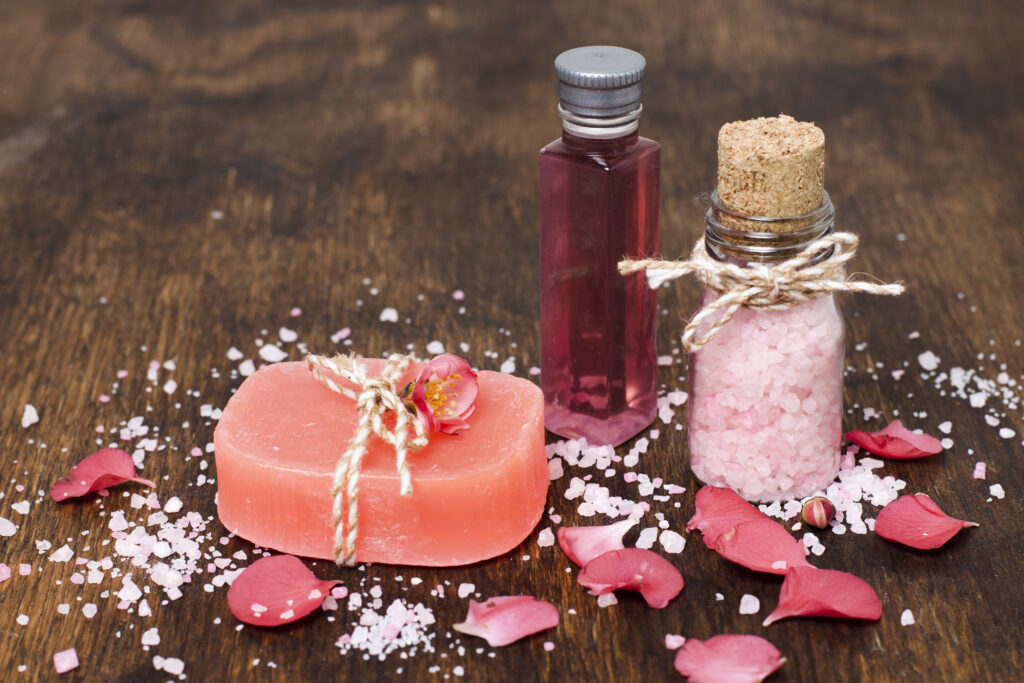

How to Craft Your Own Rosewater and Glycerin Toner
Making a rosewater and glycerin toner at home can be simple and inexpensive; here’s how you can do it:
Ingredients for This Recipe:
1 teaspoon of rosewater 1 tablespoon of glycerin
Add 3 teaspoons of distilled water (optional) to achieve a lighter consistency.
Instructions:
Ideally in a glass or bowl, combine rosewater with glycerin until evenly mixed.
If you prefer a more fluid consistency, try adding some distilled water.
Stir well before transferring the mixture to a bottle for simple application.
How to Use:
After cleansing your face, place several drops of toner on a cotton pad and gently apply it across the entire face using circular motions.
Allow the toner to absorb into your skin before applying moisturizing cream.
Are rosewater and glycerin suitable for all skin types?
Rosewater and glycerin are gentle on skin, making them suitable for use by all types of skin. Here’s an overview of their usage across skin types:
Cracked Skin: Glycerin helps retain moisture, while rosewater soothes and moisturizes for the ultimate combination to combat dry skin conditions.
Oily Skin: Glycerin provides moisture without clogging pores, while rosewater regulates oil production to make an ideal combination for oily skin types.
Sensitive Skin: Rosewater and glycerin both possess soothing properties that make this combination ideal for calming sensitive skin.
Combine Skin: If you have combination skin, this blend will offer hydration when necessary and prevent the buildup of excessive oil elsewhere.
Precautions and tips
Always patch test any new product on your face prior to using it on the entire area to avoid allergic reactions and ensure safety.
If you suffer from acne-prone or oily skin, using too much moisture at once could result in breakouts. Apply glycerin sparingly to avoid clogging your pores and causing breakouts.
Make sure to only use premium rosewater and glycerin for optimal results.
Save homemade toner in an airtight, cool place for maximum freshness, using it within two weeks to ensure its maximum freshness.
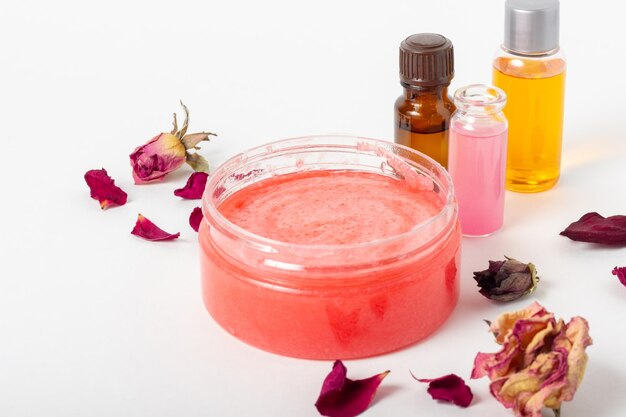

Frequently Asked Questions (FAQs):
1. Should I use rosewater or glycerin regularly?
Yes, you should incorporate glycerin and rosewater into your daily skincare routine as an effective toner after cleansing your face. It has particular utility as a cleanser.
2. Can rosewater and glycerin help treat my dark circles?
Rosewater contains mild astringent properties to reduce puffiness, while glycerin can keep skin hydrated to reduce dark circles over time. If dark circles persist despite this treatment plan, other interventions might be required for stubborn cases.
3. Can Rosewater and Glycerin Effectively Treat Acne Scars?
Rosewater can help balance skin tone and promote healing, while glycerin provides essential hydration for acne scar treatment. For optimal results, use both treatments together for maximum effectiveness.
4. At what frequency should I apply rosewater or glycerin on my face?
Applying rosewater or glycerin twice a day, morning and night, can help maintain the hydration and glow of your skin. Doing this can keep the moisture locked into your skin’s layers and maintain its health and vitality.
5. Can Glycerin and Rosewater Lighten My Skin?
Rosewater can lighten and even out your complexion, but don’t use it as a bleaching agent. While its regular use may help make skin appear clearer and brighter, it will not dramatically lighten darker tones.
6. Can rosewater and glycerin help my oily skin?
Glycerin and rosewater are excellent treatments for oily skin. Glycerin balances moisture without leaving your skin oily, while rosewater helps reduce excess oil while preventing acne breakouts.
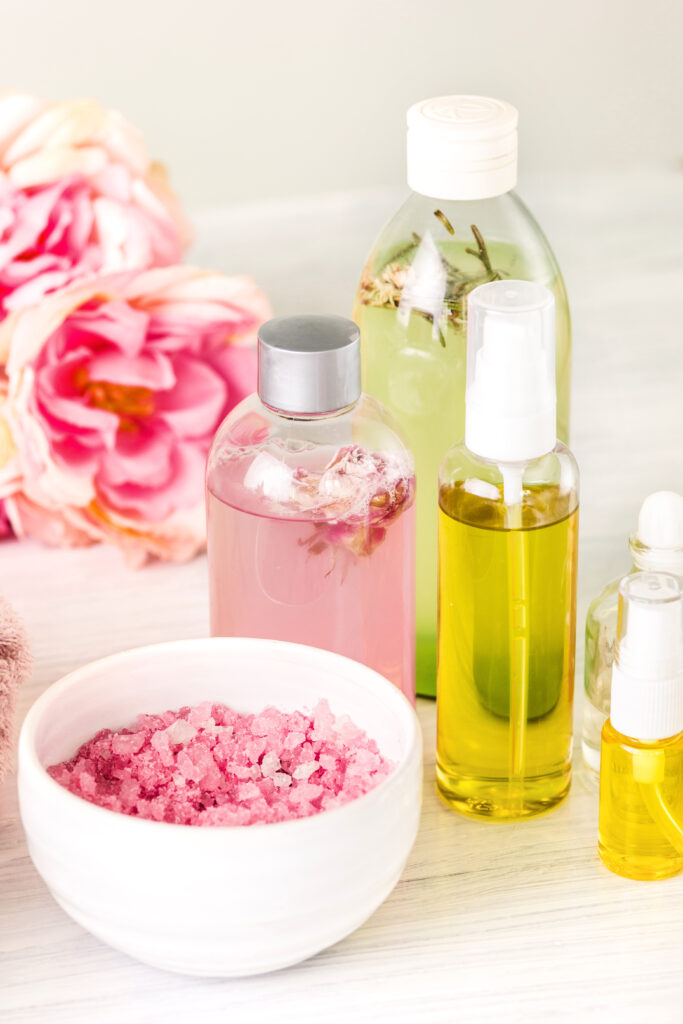

Conclusion
Rosewater and glycerin applied directly to the face are an effortless yet effective solution for all types of skin conditions, from oily to dry and sensitive. When combined together, these ingredients deliver moisture while soothing irritation for an even skin complexion and glowing appearance. Incorporating rosewater and glycerin into your routine will result in healthier, younger-looking skin!
If you’re searching for an all-natural skin care regime, this is an affordable and worthwhile option.

